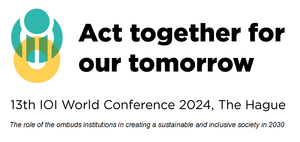The Office of the Commissioner of Official Languages conducted an audit of the Office of the Chief Electoral Officer of Canada, also known as Elections Canada, to determine whether it meets its language obligations towards electors.
Elections Canada is an independent, non-partisan agency led by the Chief Electoral Officer of Canada, who reports directly to Parliament. Elections Canada must be prepared at all times to conduct a federal general election, by-election or referendum in all 338 electoral districts. Its mission is to ensure that Canadians can exercise their democratic rights to vote and be a candidate. This audit focuses on Canadians’ being able to exercise their right to vote in the official language of their choice as well as being able to communicate in English and French within the Elections Canada network.
Our audit had four objectives. The first objective was to determine whether Elections Canada senior management is committed to implement Part IV of the Official Languages Act (the Act) in order to guarantee electors the opportunity to vote in the official language of their choice. We also verified whether Elections Canada has an official mechanism enabling it to actively offer bilingual services to electors and whether it is taking measures to provide service of equal quality in English and French at returning officers’ and assistant returning officers’ offices, mobile polling stations and polling places, including advance and central polling places. We also verified whether Elections Canada takes official language minority communities into account when planning its election officer and worker recruitment campaigns. Lastly, we verified whether Elections Canada effectively monitors its performance in terms of providing services to ensure that they are of equal quality in both official languages.
The report can be accessed HERE and you can download the PDF-Version from below.
Source: Office of the Commissioner of Official Languages, Canada

